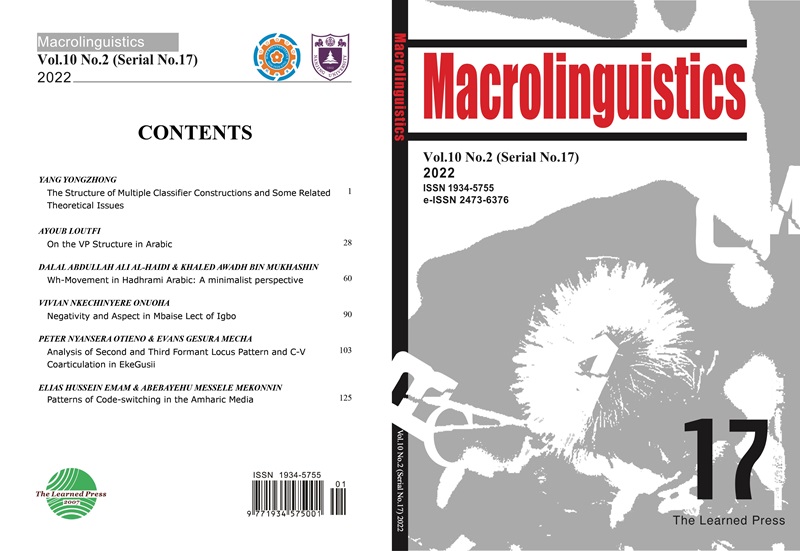近代早期到近代因果句主语位置的发展
引用次数: 0
摘要
摘要:从早期现代汉语到现代汉语,包含因果连词“jì()”、“jìrán()”、“suǒyǐ()”和“zhīsuǒyǐ()”的因果句的主语位置发生了四次不同的变化,形成了四种不同的演化方式。每一种方式都是在两种力量的竞争下发展起来的,促使主体向前或向后。每一种力都是由不同因素的推断而形成的。部队的规模和他们是否受到阻碍也是如此本文章由计算机程序翻译,如有差异,请以英文原文为准。
The Development of Subject Positions of Causal Sentences from Early Modern Times to Modern Times
China) Abstract: From early modern Chinese to modern Chinese, the subject positions of causal sentences containing causal conjunctions “jì ( 既 )”, “jìrán ( 既然 )”, “suǒyǐ ( 所以 )” and “zhīsuǒyǐ ( 之 所 以 )” appeared four different changes, and formed four different evolutionary ways. Each way developed under the competition of two forces promoting the subjects to the front or to the back. Each force formed by inferences of different factors. The size of the forces and whether they were hindered are also
求助全文
通过发布文献求助,成功后即可免费获取论文全文。
去求助
来源期刊
自引率
0.00%
发文量
83
审稿时长
20 weeks
期刊介绍:
Macrolinguistics (ISSN 1934-5755, e-ISSN 2473-6376) is an international academic journal which is specialized in research papers of non-Indo-European linguistics. It is published biannually by The Learned Press and funded by the Double First-Class Initiative of Nanjing University. It aims at contributing to the complementarity and interaction of linguistic research worldwide.

 求助内容:
求助内容: 应助结果提醒方式:
应助结果提醒方式:


